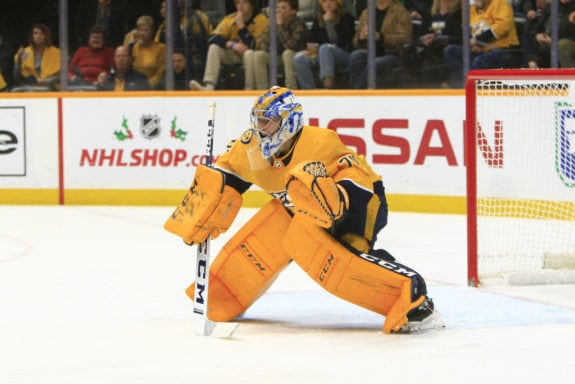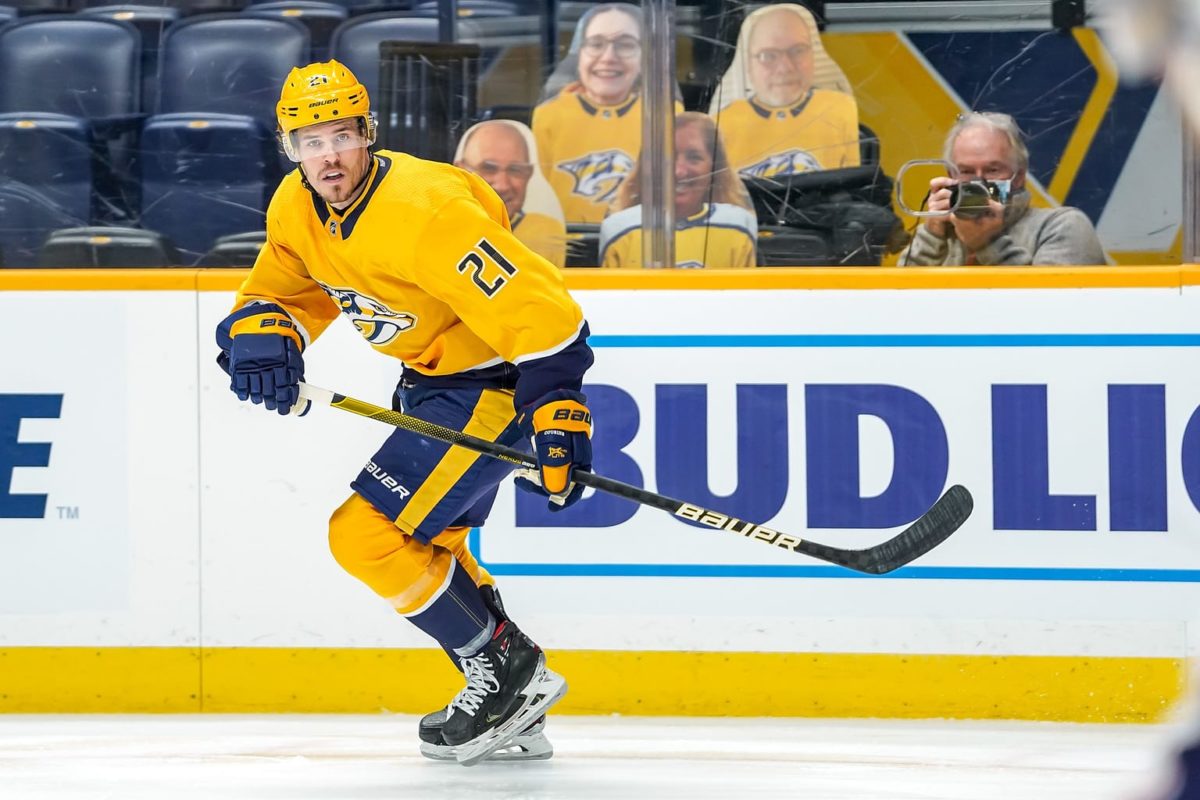After starting the season with back-to-back wins, the Nashville Predators have lost their last three games and are now in a five-way tie for the fourth playoff spot (but that also means they’re tied for last with the Detroit Red Wings). The Tampa Bay Lightning, Carolina Hurricanes, and Dallas Stars all look great in the early going and with only four playoff spots to go around, things are getting tight very quickly.
How the Penalty Kill Came Undone
In their last two games, the Stars picked apart the Predators’ penalty kill and scored eight power-play goals. What seemed like strength at the beginning of the season, the penalty kill has fallen to a 55% success rate and is now ranked 30th in the league. That is bad at the best of times, but when their power play is also only running at a 10% clip, something needs to be done about the special teams. Dallas basically scored at will and even had one goal from just above the goal line.
Despite a few unfavourable bounces and knowing that we are dealing with a small sample size, a team doesn’t give up eight goals on 12 power-play opportunities unless there is an underlying issue. I studied each of the eight goals, and there are a few takeaways about what can be fixed.
The Stars’ power-play goals included four deflections, three one-timers (including a cross-crease pass while two men short), plus one goal off the rush when Dante Fabbro was used as a screen and the puck squeaked by goaltender Juuse Saros. Some of the goals weren’t Saros’ fault, but a few he would certainly like to have back.

The defence and Saros made a few mistakes, but everyone seemed to take the game upon themselves, and the mistakes compounded from there. In the first goal of the second game, Luca Sbisa (in his first game as a Predator) chased the puck up to the blue line, and the entire power-play unit looked as lost as a peewee team. Matt Benning needs to be the sixth defenceman on the team and not Sbisa (who, coincidentally, was just placed on injured reserve).
The Changes Needed
I noticed two other problems from the succession of Dallas goals. First, the Predators were not doing a good job of blocking lanes. Whether that was shooting lanes or passing lanes, the Stars could move the puck at will, and the worn-out Nashville penalty-killers couldn’t keep up. The lack of proper positioning had defencemen standing still at the hashmarks on multiple occasions when the puck entered the net.
The inability to block lanes and passes was exacerbated by the number of bounces that favoured the Stars. The Predators got stuck trying to find a balance between pressuring the puck and collapsing towards the net and wound up doing neither. The roster has the size and skating ability on defence, so there is no reason for their defencemen to be stuck in no-man’s-land while the opposition skates through the slot.
Related: 4 Predators Takeaways from First Week: Penalty Kill, Goaltending & More
On offence, the Predators should play Rocco Grimaldi and Nick Cousins a little more shorthanded and let their speed cover more ground than Brad Richardson’s long stick.

Richardson and the rest of the penalty kill unit did well in the first few games, but a team like Dallas that moves the puck well can take advantage.
Upcoming Games
Typically an upcoming back-to-back set of games against a projected basement team like the Chicago Blackhawks would be just what the doctor ordered. However, the Blackhawks have the second-most efficient power play in the league (the Stars being number one), and it is humming along with a 42% success rate. If the Preds can’t figure things out against Chicago, then the weekend series against the Tampa Bay Lightning won’t be promising.
In 2016-17, the Predators started out slow with six losses in their first eight games before turning things around in November. That season ended in their first Stanley Cup Final appearance. This year, they don’t have to deal with new faces, and the leadership team is the same; the coach and the systems still need to have the kinks worked out.
However, the news isn’t all bad: Filip Forsberg has four goals in five games, Roman Josi is still pumping rubber (four shots per game), and knock-on-wood, the team is healthy. There is still time and opportunity to turn this around, but with almost 10% of the season already gone, the issues can’t be left unsolved for much longer.